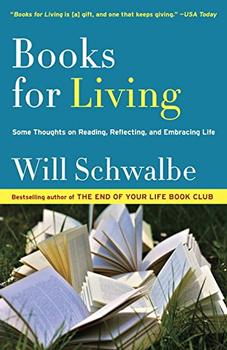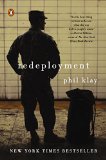Summary | Excerpt | Reading Guide | Reviews | Beyond the book | Read-Alikes | Genres & Themes | Author Bio

Reading Literature Through Peace and War at West Point
by Elizabeth D. SametSamat
explores the connection between literature and
real-life for the students at West Point Military
Academy, for whom "real-life" has changed
drastically in the last few years. When Samet
accepted her position as a civilian literature
professor in 1997, the Army, to which the academy
contributes about a thousand second lieutenants each
spring, wasn't at war with anyone. But as she
says, "Following Sept. 11, 2001, the stakes of
American soldiering had suddenly been raised, as
well as the stakes of teaching at West Point."
Teaching the literature of war to individuals who
could imagine themselves fighting a war in progress
against a specific identifiable enemy was a new
experience. For example, in 2003, as the nation
watched the news make a case for war in Iraq, Samet's class was reading Tim O'Brien's If I Die
in a Combat Zone and Hemingway's A Farewell
to Arms.
Some of Samet's students doggedly but furtively
search for the
military lesson to be extracted from every piece of
literature, while others became passionately
invested in separating the activities of the
classroom from the business of soldiering.
C.S. Lewis's once said, "We read to know we are not
alone," and that is perhaps one of the reasons
author Samat feels her role in teaching literature
at West Point is of value to the cadets. She says of
her students, "One day,… in some remote outpost that
none of us can anticipate…they too will perhaps read
to know they are not alone."
This is a powerful and introspective book that will
appeal to many people in many different ways:
If you've ever wondered what goes on behind the
hallowed halls of a military academy, you'll like
getting a glimpse into the lives of the cadets.
If you have a loved one serving in the military,
you'll read this with personal interest and perhaps
find yourself packing something extra in the boxes
from home. Look out especially for the chapter
titled "Books are Weapons".
If you're a teacher of English, or any subject for
that matter, you'll appreciate the challenge Samat
faces in making her content relevant.
If you're a history buff, you'll enjoy the
references to our country's leaders in connection
with West Point—Adams, Jefferson, George Washington,
Sherman and Grant, to name a few.
If you're philosophical, you'll be given much to
ponder with specific references to the works of
Shakespeare, Aristotle, William Golding and
Plutarch. As did one cadet, who was skeptical of the
value of literature for a soldier until he came
across the words "hope springs eternal" in Pope's
"Essay on Man". From these three words he deduced
that "perhaps hoping for the best even in the face
of eternity is what sets humanity apart."
And for those who wish to explore the literature of
war in more depth, a lifetime course of study
beckons in an appendix listing five pages of recommended books and films.
Soldier's Heart is inspirational,
informative, patriotic and even humorous at times
(mastering the acronyms and even the radio. Who says
"out" and who says "over"?). But don't take my word
for it - check out what our BookBrowse members have
to say in their "First Impression" reviews -
fourteen members posted reviews, averaging 4.5 stars out of 5.
Read them here.
Reading List: An extensive list of books and films recommended by Elizabeth Samet can be found at BookBrowse, at the end of the excerpt.
![]() This review was originally published in The BookBrowse Review in February 2008, and has been updated for the
October 2008 edition.
Click here to go to this issue.
This review was originally published in The BookBrowse Review in February 2008, and has been updated for the
October 2008 edition.
Click here to go to this issue.

If you liked Soldier's Heart, try these:

by Will Schwalbe
Published 2017
From the author of the best-selling and beloved The End of Your Life Book Club - a wonderfully engaging new book: both a celebration of reading in general and an impassioned recommendation of specific books that can help guide us through our daily lives.

by Phil Klay
Published 2015
Redeployment takes readers to the frontlines of the wars in Iraq and Afghanistan, asking us to understand what happened there, and what happened to the soldiers who returned.
The purpose of life is to be defeated by greater and greater things.
Click Here to find out who said this, as well as discovering other famous literary quotes!
Your guide toexceptional books
BookBrowse seeks out and recommends the best in contemporary fiction and nonfiction—books that not only engage and entertain but also deepen our understanding of ourselves and the world around us.